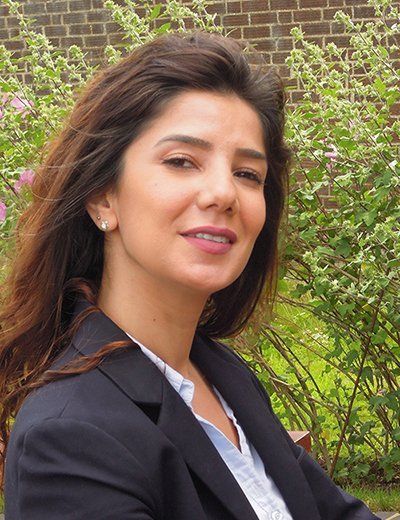Following a scientific pathway from Lebanon to the UK via France
algenuity • June 20, 2019

I’m originally from Lebanon, where I gained both a BSc and a Master’s degree in biochemistry at the Lebanese University Faculty of Sciences, and a second Master’s in applied biotechnology from the Lebanese University-Graduate School of Science and Technology (EDST). During my applied biotechnology Master’s, I worked on macroalgae and became fascinated with marine biotechnology and its application to ocean resources. I passionately wanted to continue in this field, and applied for a PhD in bioprocess engineering at the University of Nantes in France, working on microalgae for biofuel production. After my PhD, I worked as a lecturer and researcher in the department of Process and Bioprocess Engineering at Polytech Nantes – the Graduate School of Engineering of the University of Nantes. I continued in my role as a lecturer while undertaking postdoctoral research at the University of Nantes, where I was involved in a joint project with the Center for Sustainable Development at Qatar University. Our aim was to screen and characterise thermotolerant microalgae strains showing promise for large-scale outdoor production for feed, food and fuel applications in Doha, Qatar.
After three years in academia, I wanted to move into the ‘real world’ and put my research into practice by developing practical applications for the technology. That led me to Algenuity. I went to Algenuity’s website, where I read about the work it was doing and the projects it was involved in. It was just so exciting and motivating, exactly what I wanted to do and the sort of company I wanted to be a part of. I successfully applied for a senior scientist position and started in July last year.
I’m chiefly involved in process development, improving the productivity of algal strains by directed evolution, using a DoE approach to optimise our algal bioprocesses. What I love is that I’m working on a number of projects using different algal strains for various applications. It’s amazing how you can use photobioreactors to optimise your processes by adjusting the lighting and temperature conditions, and the pH and composition of the culture medium, to see how the productivity of the strain is affected. Light and temperature are particularly crucial factors, especially when you think about scaling up, and this is the big advantage of the Algem® technology. It’s possible to simulate conditions anywhere in the world, to see how algal growth in an outdoor environment is likely to be influenced by fluctuations in these parameters, or the changing seasons, and use this knowledge to improve the strain.
Algae have so much untapped potential. They are a sustainable resource rich in vitamins, proteins and carbohydrates, and good for the environment too, as they consume carbon dioxide while growing something from the biomass, which really excites me. Working with microalgae is great, it combines all my interests and really excites me. You start with a biologic strain, improve it and get to know more about it, and then put it into your process, making more adjustments to get the best productivity before scaling up. I just love this work.


